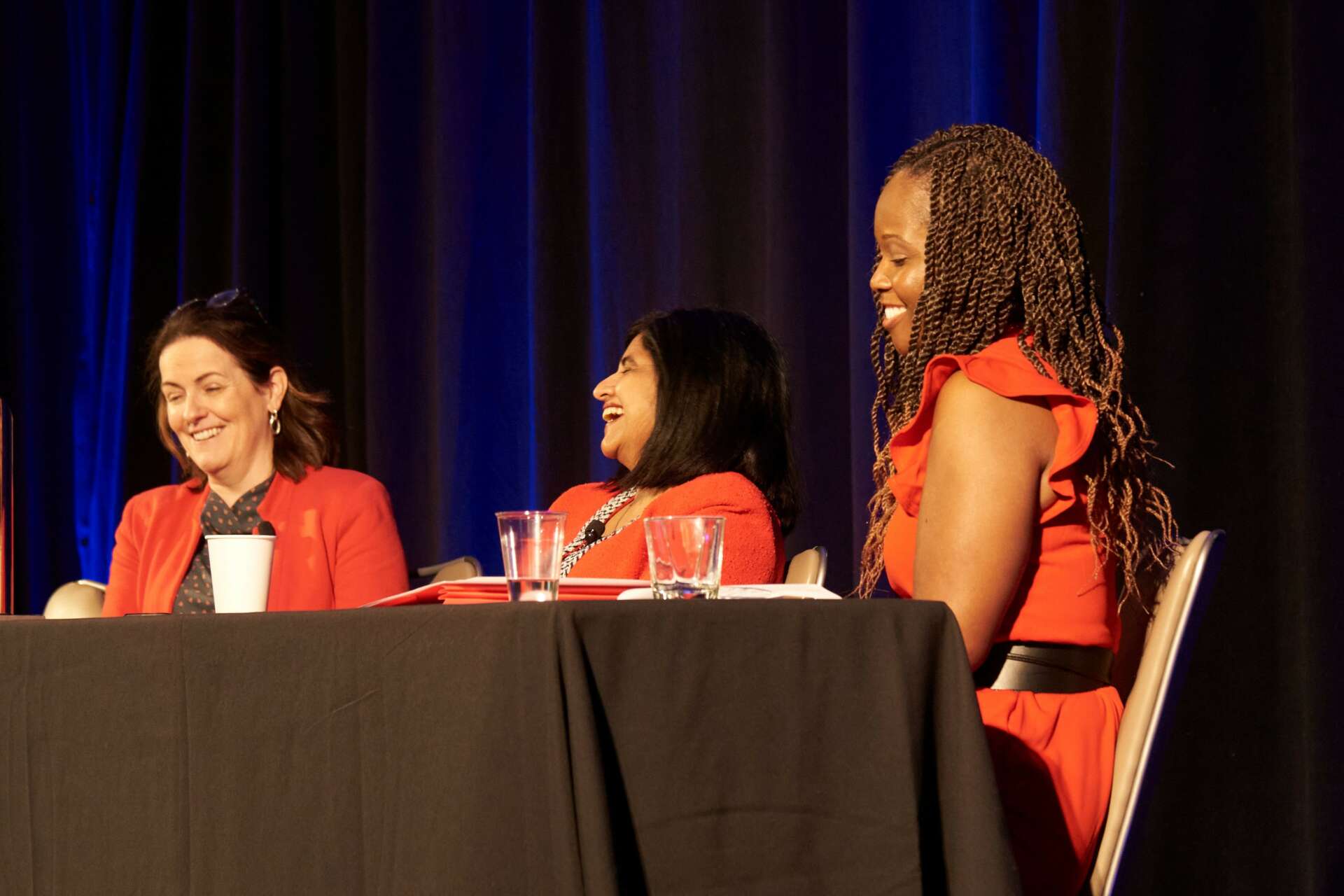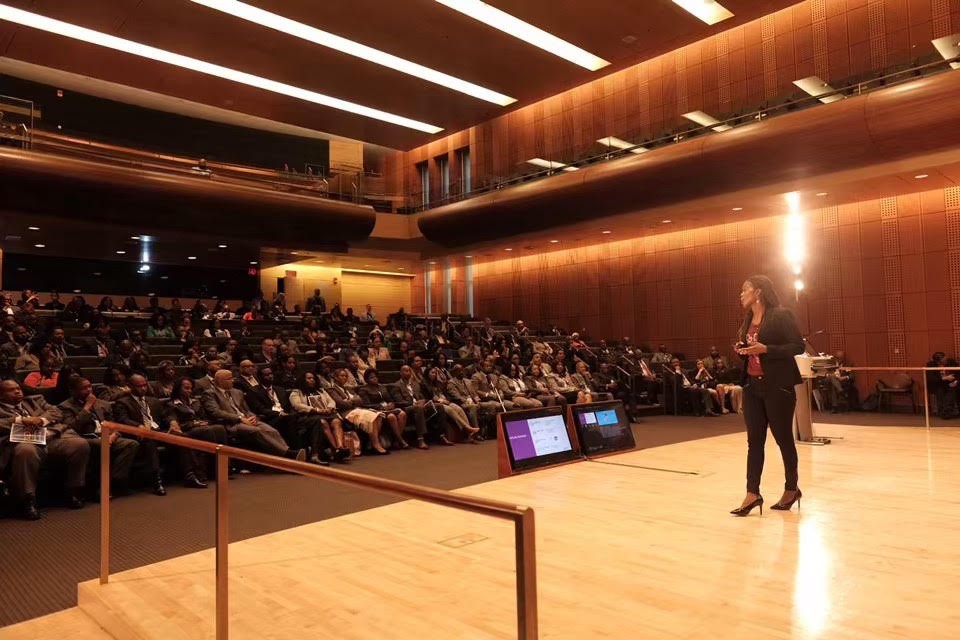We’re excited to introduce you to the always interesting and insightful Angela V. Harris. We hope you’ll enjoy our conversation with Angela below.
Hi Angela, thanks for joining us today. What do you think Corporate America gets wrong in your industry? Any stories or anecdotes that illustrate why this matters?
My corporate career was in the tech industry where Black women are underrepresented. There were times when I was the “first” or “only” Black woman on the team. Women make up 27% of the tech industry, and the number of Black women in tech remains flat at 3% according to research from The National Center for Women & Information Technology (NCWIT). In 2020, we saw companies pledge to double their number of Black employees by 2025 to address racial injustice within the United States, yet we never heard anything about retention strategies. These companies have done nothing to address the toxic work culture or underlying systemic issues that impact Black professionals. According to the 2021 McKinsey and Company Black in the Workplace Report, Black employees are facing systemic issues at higher rates than other underrepresented groups.
Here is a summary of the issues:
• Overrepresented in corporate layoffs
• Underrepresented in fast-growing industries/in-demand jobs
• Underrepresented in executive levels
• Lack of trust in employers practices
• Lack of sponsorship and allyship
Throughout my corporate career, I experienced a lack of advancement opportunities due to biases in hiring and promotion decisions. In some cases, I had more qualifications than the hiring managers, yet I was told I needed more experience, or they devalued my skills. Black employees experience a “double broken rung” which impacts the ability to move from entry-level to manager, and manager to above. This also contributes to the lack of representation at executive levels. I hold a Master’s degree in Information Technology Leadership. I had a manager who in his words, deemed me as a “high potential”, yet he refused to nominate me for a company-sponsored leadership development program. This is what is known as the “pet to threat” phenomenon, where women who were once deemed high achievers receive less support from their managers. That manager did nothing in support of my career development. He told me to “advocate” for myself. I grew tired of my skills being underutilized, so I ultimately left the company. His last words to me were “See you when you come back”.
This year we have seen mass layoffs across the tech industry and DEI departments. Companies are responding to the economic uncertainty by trying to do more with less. With that, we are seeing “quiet hiring” where jobs are not publicly advertised. Instead, internal employees take on additional responsibilities, or jobs are sourced through networks connected to the company or the hiring manager. This can lead to a lack of diversity in the workplace in terms of race, gender, age, and experience.
Black women are being paid significantly less than their White male counterparts. According to the Institute for Women’s Policy Research, it will take Black women until 2144 – well over 100 years – to reach pay equity with White men. Companies need to address these disparities by conducting regular pay equity audits.
The McKinsey report says that based on the current trajectory it will take 95 years for Black employees in the United States to reach talent parity which is about 12% representation across all levels in the corporate sector. The Black talent pipeline is like a revolving door. You cannot hire your way out of systemic issues. If companies truly value diversity and want to move the mark, they should first acknowledge the problem and then develop a plan to address the systemic issues. If not, you will continue to see a revolving door of talent and a broken talent pipeline. Ultimately corporate America should work to create an environment where Black women in tech feel valued, supported, and have equal opportunities for success.



Angela, before we move on to more of these sorts of questions, can you take some time to bring our readers up to speed on you and what you do?
Technology has always been my passion.
I saw my first computer when I was six years old, and I was mesmerized. My father purchased my first computer, a Commodore 64C when I was nine years old. Since then, working in tech has been my dream. I couldn’t see myself doing anything else.
I graduated with a degree in Information Systems from Drexel University excited to begin my corporate career. I understood the path that was laid out for me. Go to school. Get your degree. Get a job and grow your career.
We often hear people talking about their careers with such energy and passion and that’s what I expected when I entered the field, yet something was lacking. Yes, I was always working in my industry, but I never had that breakthrough moment that made me feel the passion and excitement I’d heard in the voices and stories of others.
Despite my education and proven track record in previous jobs, it was never enough. While many of my colleagues were hired and promoted based on their potential, I had to prove myself every time.
Ultimately, I learned that the rules are different as a Black woman in tech.
I had the education and work experience, but still faced rejections. I was always told I needed more experience, and it felt like my qualifications were never good enough. I knew what I was capable of and never doubted my abilities. I moved from job to job thinking that passion would come. I refused to give up because I was a first-generation college graduate and had worked too hard to throw it away.
But the truth was….
What I wanted was fulfillment. To feel like I was making a difference with the work I did and providing value to the people I was working with. I took just about every assessment trying to find the answer, but nothing helped.
It wasn’t until I took an Archetype Assessment that I gained clarity. My results showed that I love to see others win and I get my energy from empowering others to accomplish their goals.
That’s when the lightbulb went off – I wanted to coach people, most importantly Black professionals, to navigate the technology space.
While working with a coach I learned about a nonprofit organization called Coaching For Everyone (CFE). CFE offers a coaching fellowship program to train and increase the number of Black, Indigenous and People of Color (BIPOC) coaches in the industry. I received a scholarship to complete my coach training through the Institute for Professional Excellence in Coaching (iPEC), an International Coaching Federation (ICF) accredited institution, which is a globally-recognized coach training school. I earned my Certified Professional Coach (CPC), COR.E Leaderships Dynamics Specialist (CLDS), COR.E Wellbeing Dynamics Specialist (CWDS), and Energy Leadership Master Practitioner (ELI-MP).
As a former corporate employee in the tech industry, I understand the “unique experiences” Black women face in the workplace. In my coaching practice, I help Black women in tech strategically navigate the corporate landscape so they can be seen, feel valued, and get promoted. I use my signature Career AcceleratHER for Black Women in Tech coaching program to help my clients dig deep to uncover and align their true motivation, passion, and
values, so they can lead with confidence and drive personal and organizational success.



We’d love to hear a story of resilience from your journey.
When life gives you lemons, you make lemonade. I’ve been making lemonade my entire life. I grew up as an only child, but I am my parent’s second child. I would have had an older brother, but he died from the croup as an infant. My mother died from stomach cancer when I was three years old. My father died from prostate cancer when I was 21 years old. I’m also a first-generation college graduate. Given all these factors, I’ve managed to beat the odds. My parents attended segregated schools in Greenwood, SC, and Washington, DC. They also attended the historic March on Washington. My father always stressed the importance of education, and I knew from an early age that I wanted to attend college, so I made that my goal. I’m committed to honoring their legacy and taking advantage of the opportunities they did not have. I believe in lifting while I climb. I didn’t receive any scholarships when I was in college. I recognize that receiving a college education is a privilege. Since graduating, I have started two scholarships supporting Black students studying technology at Drexel University and La Salle University. I have awarded over $100,000 in scholarships to students at Drexel University since 2017. I’m committed to creating access opportunities for others to thrive.
Have you ever had to pivot?
In 2022, I was drowning in a toxic work environment that was impacting my mental and physical health. I was diagnosed with breast cancer, work-related depression, anxiety, and PTSD within the span of seven months. I decided to face my fears and prioritize my mental and physical well-being. I left my 24-year corporate career in the tech industry to focus on my coaching and consulting business full-time in October 2022. It wasn’t worth staying in a job where I was miserable and compromising my health. I also moved cross country from Redmond, WA back to my hometown of Washington, DC in January 2023.
Contact Info:
- Website: www.angelavharris.com
- Instagram: https://www.instagram.com/coachangelavharris
- Facebook: https://www.facebook.com/coachangelavharris
- Linkedin: https://www.linkedin.com/in/angelavharris/
- Twitter: https://twitter.com/angelavharris


